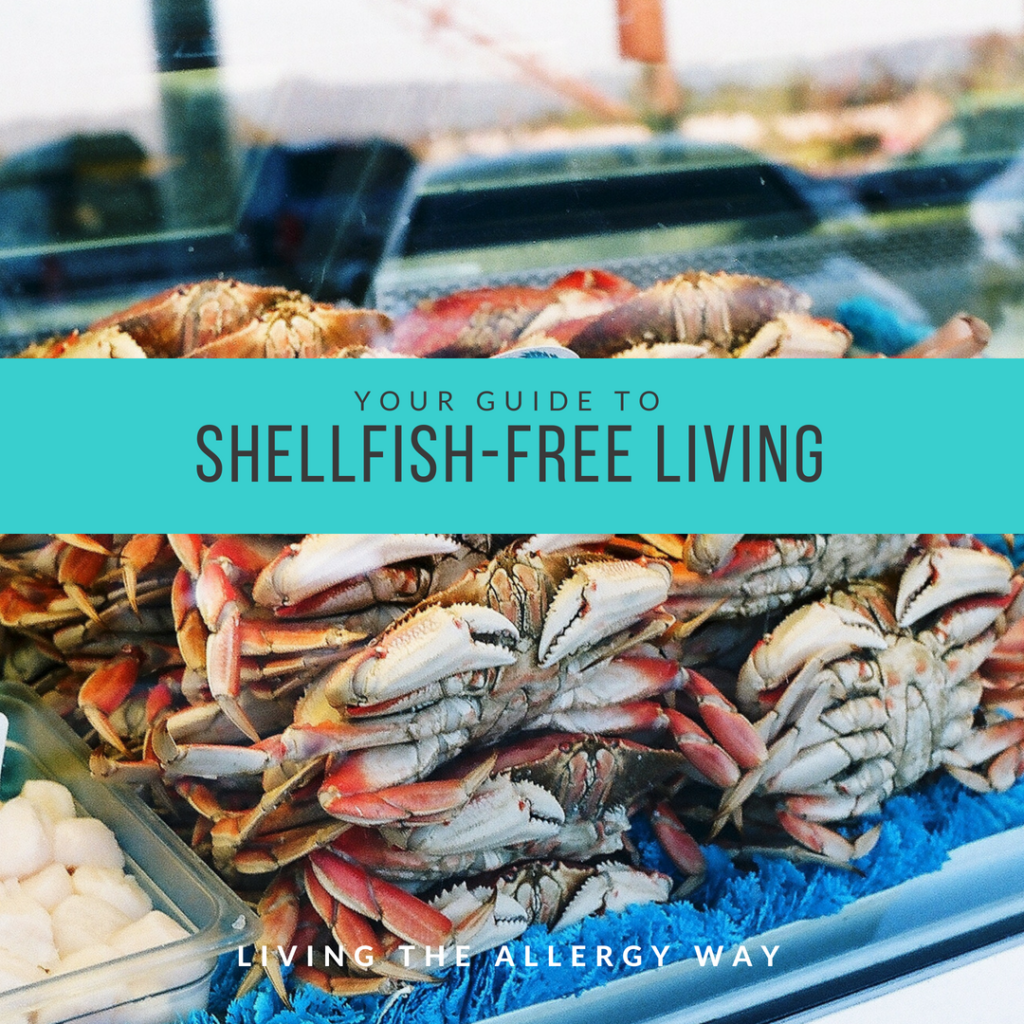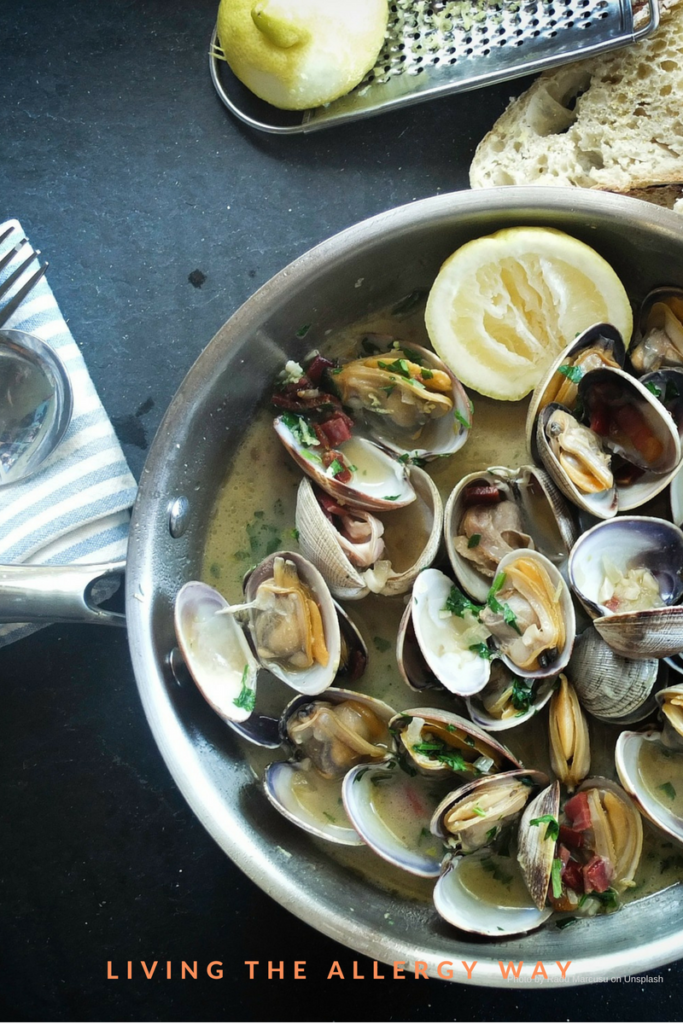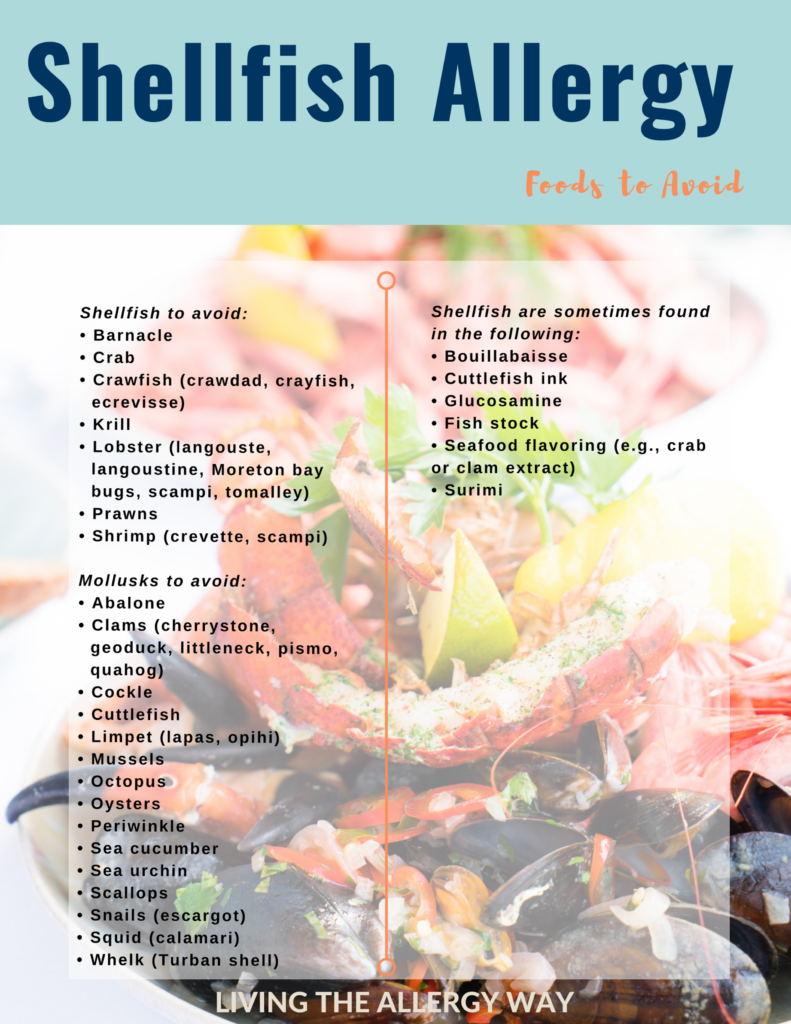Just diagnosed with a shellfish allergy?
Have you always been able to eat shellfish but now you get a reaction when you eat shrimp, crab, or lobster? Do clams, oysters or scallops make you itch?
One of my friends is allergic to shrimp and he cannot be in the same room with it. That means seafood restaurants are out! This is not uncommon because sometimes the steam released from cooking will become airborne and can cause a reaction or there could be cross-contamination during prepping of the food. Even if you were able to eat Asian food before, if you are new to this shellfish allergy you should avoid Asian cuisine because they often use fish sauce as a flavoring base.
But I was able to eat it before, what happened?
Shellfish allergies often develop later in life. So it could happen that you once ate shrimp consistently but now cannot eat them without a reaction. Researchers are not sure why this occurs but it may be due to the type of proteins are different in shellfish than they are in nuts or eggs. You are not alone, about 60% develop shellfish allergies as an adult. Some of these reactions can be severe so be sure to see an allergist to get an accurate diagnosis to get an epinephrine auto-injector (such as an EpiPen®, Auvi-Q® or Adrenaclick®) and carry it at all times. Once diagnosed, shellfish allergies can be lifelong so avoidance is key.
Did you know that there are two different types of shellfish? I didn’t!
Let’s have a look at the different types of shellfish. Crustacean shellfish are shrimp, crab and lobster. Mollusks are clams, mussels, oysters and scallops. If you are allergic to shrimp you should avoid all crustacean types of shellfish but you may be able to eat some or all types of mollusks. See an allergist to get tested and avoid fish markets where they are sold and cooked.
Now, what should you look for?
Since 2004, all food labels need to clearly identify the eight most common food allergens in the U.S. So now all labels must list the ingredient and all must place a “Contains: Shellfish” statement beneath the list of ingredients. You will sometimes see statements such as “may contain shellfish” or “made in a facility with shellfish”. These are all voluntary and not required so make sure you read your ingredient list. Not all products are regulated by the FDA so always be careful before you try any new lotions, shampoo or bird food.
Foods to avoid that contain shellfish or any of these ingredients:
- Barnacle
- Crab
- Crawfish (crawdad, crayfish, ecrevisse)
- Krill
- Lobster (langouste, langoustine, Moreton bay bugs, scampi, tomalley)
- Prawns
- Shrimp (crevette, scampi)
You may be allergic to mollusks which include clams, mussels, and scallops to name a few. If so, you need to be very careful because the FALCPA does not consider these to be part of the top 8 allergen groups so they are not required to be labelled.
Avoid these ingredients if you have a mollusk allergy:
- Abalone
- Clams (cherrystone, geoduck, littleneck, pismo, quahog)
- Cockle
- Cuttlefish
- Limpet (lapas, opihi)
- Mussels
- Octopus
- Oysters
- Periwinkle
- Sea cucumber
- Sea urchin
- Scallops
- Snails (escargot)
- Squid (calamari)
- Whelk (Turban shell)
I’ve included a list of shellfish ingredients here. You can even print your list out and carry it with you to the store.
Are there any hidden sources of shellfish or mollusks?
Yep! It is hard enough to keep track of your allergies but now you need to also worry about hidden sources?! Like all other allergies, shellfish can be found in soups, vitamins and flavorings. I’ve included a list of these items for you below.
- Bouillabaisse
- Cuttlefish ink
- Glucosamine
- Fish stock
- Seafood flavoring (e.g., crab or clam extract)
- Surimi
There is often confusion on whether those with shellfish allergies can safely eat items with Carrageenan as an ingredient or be able to participate in radiographic procedures that use iodine in the contrast material. Good news, carrageenan or “Irish moss,” is a red marine algae that can be used as an emulsifier, stabilizer, and thickener, especially in dairy foods. It appears safe for most individuals with food allergies. Iodine appears to be no link between shellfish allergy and iodine allergy so you do not need to worry about cross reactions with radiocontrast material or iodine.
So, go ahead …..
Read those labels!
Know your avoid list!
Always tell your server about your allergies!
Look for hidden sources
Sources: FDA http://www.fda.gov/Food/ResourcesForYou/Consumers/ucm079311.htm
FARE Food Allergy Research and Education.



Leave a Reply